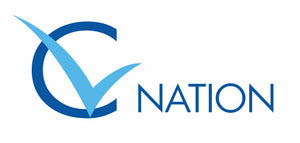What not to include in a CV. This is a common question asked by many people who are writing CVs. What should and shouldn’t be included in a CV. We all know that certain information should not be included in your CV, but what are the standards and expectations of employers?
Information such as gender, marital status and date of birth should be avoided as recruiters are not allowed to use this information as part of their decision making process. Including this information in your CV may actually make them feel uncomfortable, resulting in them passing on your CV to avoid opening a can of worms.
However, there are certain industries that require personal information. For example, if you’re a flight attendant, your cabin crew CV should include your date of birth, gender, height, arm reach and so on.
As mentioned earlier, it’s important to ensure your CV is tailor specifically to the industry that you are applying to. Do some research and make sure you understand what is expected of candidates in the industry.
Including unexplained gaps in employment is another one to avoid. Many people take career breaks and have gaps in employment. There is no problem with these periods of unemployment in your CV. However, ensure these gaps are explained in a positive way.
Don’t just describe why you were unemployed, but find the positives and draw attention to them. For example, you could show how you maintained a knowledge of industry developments or acquired new skills.
References should also not be included in your CV. If you reach the stage of the job application process where recruiters want to speak to references, they will ask you. Many people include a line at the end of their CV that states ‘references are available on request’.
However, this is not required. Use the space in your CV wisely and show how you can add value, rather than including information that is redundant.
Lies are also something to avoid at all costs in your CV. Recruiters go through many CVs and they become accustomed to noticing the pieces of information that likely are not true. You may be asked about information in your CV at the job interview, so it’s a wise idea to make sure your CV doesn’t tell barefaced lies.
Unprofessional email addresses could also result in your CV edging closer to the trash can. Email addresses like allaboardhelen@gmail or crazydavid@hotmail don’t send out a very professional message. Creating a new one is free, so spend a few minutes opening a new email account and getting an email address that looks acceptable on your CV.
A link to your Facebook page or Twitter page is a no-no. While it is always advisable to include a link to your LinkedIn profile, we don’t recommend including links to other social media platforms. Keep your job application professional.
Over the top buzzwords or enthusiasm in your CV can be counter-productive. Here at CV Nation, we review thousands of CVs every year. We notice all kinds of mistakes and issues that could cause problems. One of the less common CV mistakes is over the top buzzwords or enthusiasm. ‘Enviable skills and achievements in project management’ and ‘Unrivalled success in my profession’ are examples.
You should show your capabilities through results and achievements, rather than exaggerated claims that can’t be backed up.
Reasons for leaving jobs. While we have noticed an extreme minority of employers asking for this information on CVs, it’s highly advisable to avoid raising the issue of why you left employment. If necessary, you can explain why you left your previous jobs at the job interview. A CV is not the place to explain this information.
Should you include a photo in your CV? You shouldn’t include a photo in your CV, unless you are applying for a job that requires one, such a modelling jobs, cabin crew jobs or acting jobs. For other roles, your photo shouldn’t have an impact on the success of your application so it is advisable not to include a photo in your CV.
Bear in mind that if you’re using your CV to apply for jobs in certain foreign countries, the rules around what should or shouldn’t be included change. For example, Saudi Arabia CVs and Dubai CVs should include a photo, along with personal information, such as gender, nationality, visa status, marital status etc. While recruiters do not make recruitment decisions based on this information in the West, it should be included in your CV for applications in the Middle East.
